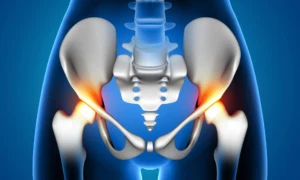Parasitic worms, also known as helminths, are organisms that live in and feed off a host organism, often causing harm to their unwitting hosts. While the idea of parasitic worms may evoke discomfort, it’s crucial to understand their various types, symptoms, and the importance of prevention and treatment. In this blog, we will delve into the world of parasitic worms in humans, exploring different types, common symptoms, methods of transmission, and measures to safeguard against these unwelcome invaders.
Types of Parasitic Worms
- Roundworms (Nematodes): Roundworms are among the most common parasitic worms in humans. They include species such as Ascaris lumbricoides, responsible for intestinal infections, and Toxocara canis, which can cause visceral larva migrans.
- Flatworms (Trematodes and Cestodes): Trematodes, or flukes, and cestodes, or tapeworms, are two subtypes of flatworms that can infect humans. Schistosoma spp. and Fasciola hepatica are examples of trematodes, while Taenia solium and Echinococcus spp. are examples of cestodes.
- Threadworms (Enterobius vermicularis): Also known as pinworms, these small, white worms commonly infect the intestines and are particularly prevalent in children.
Buy mebendazole to treat above all types of parasitic worms.
Common Symptoms of Worm Infections
The symptoms of parasitic worm infections can vary depending on the type of worm and the affected organ. However, some general symptoms include:
- Abdominal pain: Worms residing in the intestines can cause discomfort and abdominal pain.
- Weight loss: Chronic worm infections can lead to malnutrition and weight loss.
- Fatigue: Worms may deprive the host of essential nutrients, leading to fatigue.
- Digestive issues: Diarrhea, constipation, and nausea are common digestive symptoms.
Transmission and Risk Factors
Parasitic worms are often transmitted through contaminated food, water, soil, or direct contact with infected individuals. Poor sanitation and hygiene practices, as well as inadequate food preparation, contribute to the spread of these parasites. Traveling to regions with poor sanitation increases the risk of exposure.
Prevention and Treatment
- Hygiene Practices: Regular handwashing, proper food hygiene, and avoiding contact with contaminated water can significantly reduce the risk of worm infections.
- Cooking and Washing: Thoroughly cooking meat and washing fruits and vegetables before consumption help eliminate potential worm larvae.
- Regular Deworming: Periodic deworming, especially in regions with a high prevalence of worm infections, is crucial to control the spread of parasites.
- Medical Treatment: Ivermectin 6 mg tablet medications prescribed by healthcare professionals are the primary treatment for parasitic worm infections. The choice of medication depends on the specific type of worm involved.
Conclusion
Parasitic worms in humans pose a significant health concern, affecting millions of people worldwide. Understanding the types, symptoms, and transmission methods is essential for prevention and timely intervention. By adopting good hygiene practices, promoting awareness, and seeking medical attention when needed, we can protect ourselves and our communities from the impact of these uninvited guests.






































